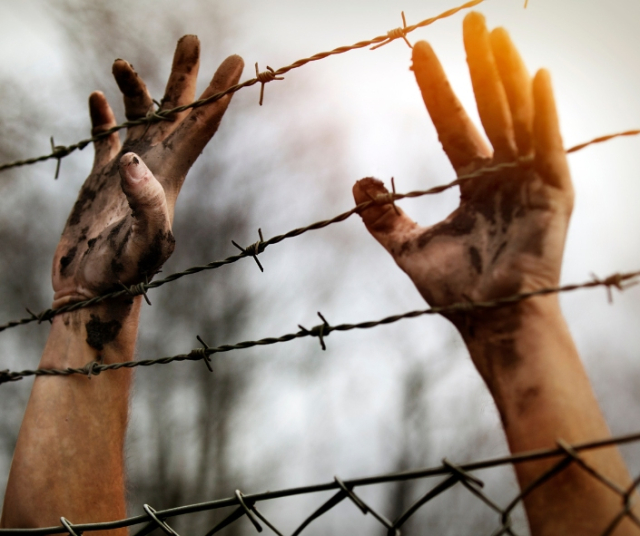World Refugee Day is an annual day that invites us to reflect on the situation of millions of people who are forced to leave their homes due to conflicts, persecution and human rights violations. This commemoration, established by the United Nations General Assembly, seeks to raise awareness in society about the reality of refugees and promote global solidarity to address this unprecedented humanitarian challenge.
The context in which the need to address the refugee issue at a global level arose is in the post-World War II period. Millions of people were forced to flee their homes due to the ravages of conflict, and an unprecedented humanitarian crisis emerged. In this context, the United Nations (UN) General Assembly recognized the urgent need to establish a legal structure and normative basis to address the situation of displaced people.
The Convention relating to the Status of Refugees, adopted in 1951, became a fundamental milestone in the protection of refugee rights. This legal instrument, supported by the UN, defined who a refugee is, what their rights are and the obligations of states towards them. The additional protocol of 1967 expanded the application of the Convention beyond the original temporal and geographical limits.
World Refugee Day was established to commemorate the anniversary of the signing of this Convention, on July 28, 1951. Since then, every June 20, the international community comes together to reflect on the progress achieved and the persistent challenges in the protection of refugees.
Over the decades, World Refugee Day has evolved to more comprehensively address the changing challenges faced by displaced people. Initially, the commemoration focused on highlighting the plight of refugees and promoting solidarity. However, as the global refugee crisis intensified, the event took on a more active role in raising awareness and generating concrete actions.
The Global Refugee Crisis
The world is currently facing an unprecedented refugee crisis. According to the United Nations High Commissioner for Refugees (UNHCR), at the end of 2022, there were more than 82 million forcibly displaced people around the world. This number includes 26.4 million refugees who have crossed the borders of their countries in search of safety and protection.
The causes of the refugee crisis are diverse and complex, from armed conflicts to massive human rights violations, ethnic and religious persecution, as well as natural disasters. Syria, Afghanistan, South Sudan and Myanmar are just some of the countries that have generated significant flows of refugees in recent years.
Refugee Challenges: A Detailed Look
Access to Education:
One of the most significant challenges refugees face is access to education. Many refugee children are forced to drop out of school due to a lack of resources and opportunities in refugee camps. This not only affects their personal development but also has long-term consequences for the reconstruction and stability of the affected communities.
Health care:
Adequate medical care is essential for the survival and well-being of refugees. However, many face significant barriers to accessing quality health services. The lack of adequate infrastructure in refugee camps and the shortage of trained medical personnel are persistent challenges that must be urgently addressed.
Right to work:
The right to work is fundamental for the autonomy and dignity of people. However, refugees often face legal restrictions and discrimination in the workplace. The creation of programs that facilitate the labor integration of refugees is essential for their well-being and to promote social cohesion in host communities.
International Responses and Global Solidarity
Faced with this humanitarian crisis, it is essential that the international community responds with solidarity and concrete actions. States, non-governmental organizations and civil society play key roles in protecting refugee rights and finding sustainable solutions.
Protection and Asylum:
Countries have a responsibility to guarantee protection and asylum to those fleeing dangerous situations. This involves adhering to international conventions and enacting policies that respect the fundamental rights of refugees.
International cooperation:
Cooperation between countries and organizations is essential to address the complexity of the refugee crisis. The coordination of efforts, the exchange of good practices and the mobilization of resources are key elements to achieve effective and sustainable responses.
Education and Opportunities:
Ensuring access to education and creating job opportunities for refugees are long-term investments in the well-being of people and the stability of communities. Education and vocational training programs are powerful instruments to empower refugees and prepare them to contribute positively to their host societies.
The Role of Civil Society
Civil society plays a crucial role in raising awareness and mobilizing resources to support refugees. Non-governmental organizations, volunteers and human rights advocates work tirelessly to provide humanitarian aid, legal protection and essential services to those who have been displaced.
Furthermore, solidarity at an individual level is essential. Empathy and understanding towards the plight of refugees can generate significant changes in public perception and foster acceptance and inclusion in host communities.
As we look to the future, it is imperative that the international community strengthens its commitment to protecting refugee rights and working towards long-term solutions. Only through collaboration and mutual understanding can we build a more just and humane world for all.
